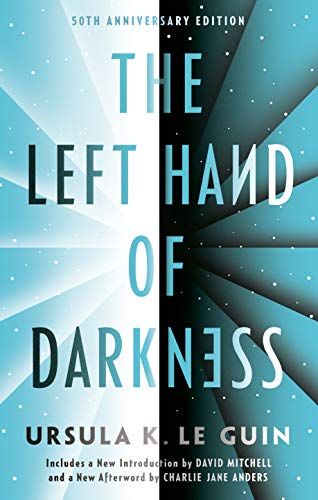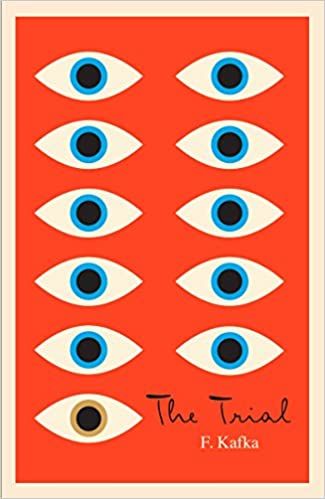What is philosophical fiction? Well, that’s something we could argue about! For me, philosophical fiction deals with ideas in a direct way. Sometimes this fiction contains actual philosophizing in it: characters might argue over ideas or a narrator might make a case for a certain way of looking at the world. Sometimes this fiction embodies ideas in its storytelling, so the philosophizing is implicit rather than explicit. Reading this type of philosophical fiction, we experience the ideas or the viewpoint as we absorb the story.
Now, it’s possible to argue that any piece of fiction fits this definition, since any piece of writing contains ideas. But I would argue that philosophical fiction highlights or foregrounds its ideas in some way. It’s a matter of degree. Any fiction contains ideas, but philosophical fiction encourages the reader to ponder big questions. It purposely provokes thought and debate.
All the novels below ask you to think. They cover many of the major philosophical fields: epistemology (what we can know), metaphysics (the nature of reality), ethics (how we should live), aesthetics (art and what is beautiful), political philosophy (how we organize society), and the philosophy of religion (faith, the existence of God, the problem of evil). The wonderful thing about philosophical fiction is that it covers all these fields, but does so through the trappings of fiction: character, plot, setting, etc. These novels make philosophy approachable and fun.
This list begins with contemporary works and then moves on to older ones. Take a look through and pick up a book that entertains and expands your mind all at the same time!
Great Contemporary Philosophical Fiction
The Factory by Hiroko Oyamada, Translated by David Boyd
This is a novel about work in modern life. Three people get jobs at a sprawling factory in an unnamed city in Japan. But things begin to turn strange as the factory expands and engulfs everything around it. Where, exactly, does the factory end? Where and when does one’s work end? With its shades of absurdity, this is a wonderful novel for thinking about reality, meaning, and labor in the modern world.
Flights by Olga Tokarczuk, translated by Jennifer Croft
Flights is an unconventional novel without a main story line; instead, it is a series of vignettes connected by the narrator’s meditations on travel, time, the body, and a lot more. The narrator is a thoughtful, companionable guide with fascinating insights about the world, and the interspersed stories are enjoyable reads that reflect back on the novel’s main themes in interesting ways. This is a book for those interested in life, death, the body, and movement.
The Last Samurai by Helen DeWitt
The Last Samurai is about a mother, Sibylla, and her son, Ludo, who is a prodigy. Sibylla, brilliant herself, guides him in his education. To make up for the lack of a father figure, she repeatedly shows him the film Seven Samurai. We get Sibylla’s point of view first and then Ludo’s, as he goes on a quest to find his unknown father. The book of chock full of ideas and virtuosic prose and wonderful for thinking about language and the movement from childhood into the world of adults.
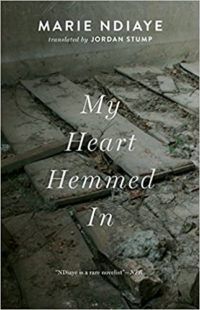
My Heart Hemmed In by Marie NDiaye, Translated by Jordan Stump
This is a novel that interrogates the nature of the self and reality. It tells the story of Nadia and her husband Ange, schoolteachers who come to realize everyone around them despises them. Then a mysterious wound appears in Ange’s stomach, and a neighbor inexplicably worms his way into their lives. At the heart of this strange story are questions about identity, guilt, causality, and the relationship of the individual to society.
Remainder by Tom McCarthy
A man is injured, receives a large sum of money in compensation, and doesn’t know what to do with it. Then he gets the idea to use the money to recreate scenes from his past. As he gets into this project, his recreations become more and more elaborate, and then more and more violent. These expensive, minutely-detailed recreations still leave him longing for more. This novel is a great way to think about issues of reality, memory, authenticity, and identity.
They Will Drown in Their Mother’s Tears by Johannes Anyuru, Translated by Saskia Vogel
Set in Sweden, this work of speculative fiction opens with a violent attack on a bookstore hosting a controversial author. One of the attackers turns out to be a visitor from an alternate future. Or at least she believes she is. Over the course of the novel, she tells her story to a writer who tries to piece together what actually happened, and who grapples with his status as a Muslim in a place that is less and less welcoming. This social and political novel explores terrorism, Islamophobia, and anti-immigrant ideology.
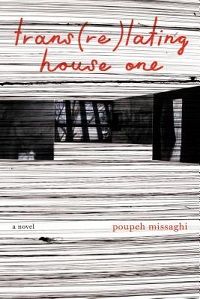
Trans(re)lating House One by Poupeh Missaghi
This novel follows a woman searching Tehran for missing statues in the aftermath of the 2009 presidential election protests in Iran. Interspersed among sections telling her story are passages where a narrator contemplates the searching woman’s quest and asks questions about memory, documentation, violence, and what we owe the dead. The novel also incorporates passages on these issues from a range of philosophers and writers. It’s a multi-layered exploration of how we grapple with loss, how we memorialize the dead, and how we best live our lives.
Transcendent Kingdom by Yaa Gyasi
This novel tells the story of Gifty, a graduate student in neuroscience at Stanford. She is studying reward-seeking behavior in mice. Part of her motivation is to try to understand her brother, who died of a heroin overdose, and her mother, who struggles with depression. As she grapples with her family history, she thinks about her childhood faith and the church in which she was raised. The novel’s engaging story allows readers to think through issues of science, religion, family, race, and what drives us to behave the way we do.
What Are You Going Through by Sigrid Nunez
What Are You Going Through is a novel of talking and thinking. The main character interacts with a series of people — an old lover, a friend, strangers — and listens and contemplates what they have to say. Then a friend makes a difficult request: would the narrator be willing to help a terminally ill woman die by suicide? The novel is about how we live, what we owe to future generations, and how we die. It asks what our future will look like as climate change worsens and how we can best understand our mortality.
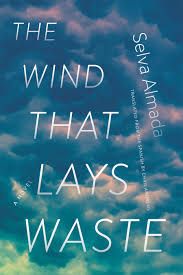
The Wind That Lays Waste by Selva Almada, Translated by Chris Andrews
Set in the Argentinian countryside, this novel tells the story of four people unexpectedly spending the day together after a car breaks down. A preacher, his daughter, an auto mechanic, and the boy who lives with him all circle around one another, talking. As time passes, they begin to talk about religion, morality and God. They share ideas and experiences as a storm threatens on the horizon. This is a wonderful novel for thinking about matters of faith and meaning.
Great Classic Philosophical Fiction
Frankenstein by Mary Shelley
This 1818 classic is a wonderful story as well as a powerful meditation on what it means to be human. Victor Frankenstein is seized with the desire to create a living creature. He succeeds, but his creation is not at all what he expected, and now he must deal with the consequences. His “creature,” meanwhile, must grapple with who he is and how he wants to live in the world. The ideas at play in this gothic novel are many: ambition, creativity, nature, science, education, parenting, society, storytelling, and more.
Invisible Man by Ralph Ellison
The unnamed narrator of this 1952 novel opens by reflecting on his experiences of invisibility and his determination to tell his story. He then goes on to tell his life story. The narrative moves from his small southern town, where the famous “battle royal” scene takes place, on to college, and then to further adventures in Harlem. The story is exuberant and wild, while also shedding light on mid-century life for Black people in the U.S. It’s a powerful look at racism, identity, and the struggle to tell one’s story and be seen.
The Left Hand of Darkness by Ursula K. Le Guin
This science fiction novel looks deeply into issues of gender and identity. It tells the story of Genly Ai, a human sent to the planet Gethen to persuade the nations there to join a planetary confederation. To make his case, however, he must understand their culture. This planet’s inhabitants can choose and change their gender. Genly, in his relationship with the Gethenian inhabitant Estraven, thinks through what this means. The novel explores issues of gender and culture, as well as psychology, loyalty, and relationships.
The Name of the Rose by Umberto Eco, Translated by William Weaver
The Name of the Rose takes place in Italy in the 14th century. It’s narrated by Adso, a Benedictine novice, who accompanies Brother William of Baskerville to a Benedictine Abbey to investigate alleged heresy. But then bizarre deaths start occurring. Baskerville turns into a detective and uses the tools of philosophy to investigate what’s going on. This is a novel for those who love history, books about books, mysteries, and theological and philosophical disputes.
Notes from Underground by Fyodor Dostoyevsky, Translated by Richard Pevear and Larissa Volokhonsky
The classic of philosophical fiction has an unnamed narrator who has withdrawn from society. In his anger and bitterness, he writes his story and his thoughts about the world. He contemplates contemporary Russian philosophy, but, more generally, he writes about suffering and pain, freedom, and the idea of a utopian society. He is passionate, angry, and contradictory, and his narrative provides an excellent way to think about human nature and society.
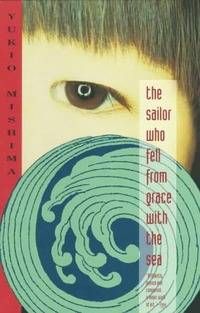
The Sailor Who Fell from Grace with the Sea by Yukio Mishima, Translated by John Nathan
This novel tells the story of Noboru and his friends who form a band or a gang in protest against the adult world. They see that world as illusory, hypocritical, and soft. They train themselves in a philosophy they call “objectivity.” The novel takes a violent turn when Noboru’s mother has an affair with a sailor and the boys become disillusioned with him. It’s an exploration of ideas about honor, alienation, gender, and what it means to be human.
A Severed Head by Iris Murdoch
Set in and around London, this 1961 novel is about morality and relationships, exploring the lives of middle class professionals. Martin is married and having an affair. But then his wife, Antonia, leaves him for a friend and shocks him out of his complacency. The characters in this book believe they have moved past conventional morality, but struggle with how they should now live. A Severed Head is an entertaining read that looks closely at how we make sense of our lives and our behavior.
Sophie’s World by Jostein Gaarder, Translated by Paulette Moller
This novel is great for those who want an overview of philosophical history, told through fiction. Fourteen-year-old Sophie Amundsen receives two mysterious notes in the mail. One asks, “Who are you?” and the other, “Where does the world come from?” More letters continue to appear, and Sophie undertakes a study of philosophy through correspondence. Her study covers the major philosophers and their ideas. Sophie’s story, mixed with the philosophy, makes for reading that is both entertaining and educational.
The Trial by Franz Kafka, Translated by Breon Mitchell
The Trial tells the story of Joseph K., who is arrested but never told why. He must defend himself without knowing the charges. He remains free but is subject to orders from the “Committee of Affairs,” and he tries in vain to discover his crime. People interpret the novel in many ways: as a meditation on state bureaucracy, God, totalitarianism, psychological states, Kafka’s own life, and more. It’s a haunting fable about institutions and powerlessness.
Wittgenstein’s Mistress by David Markson
Wittgenstein’s Mistress is the story of a woman named Kate who lives alone at the end of the world. Or at least she believes she does. The novel consists of a series of statements she about her world and about western culture, with topics shifting quickly but recurring as we follow her thoughts. She could possibly be delusional, but, then again, perhaps not. The novel is an experimental and also highly entertaining meditation on language, isolation, communication, and memory.
After reading a bunch of great philosophical fiction, you might want to tackle some straight-up philosophy. If so, make sure to check out this list of great philosophy books for beginners.
And if you’re looking for a certain kind of book to fit your reading mood, Book Riot has a solution for you! Sign up for Tailored Book Recommendations, or TBR, to get reading recommendations to suit any reading whim.

